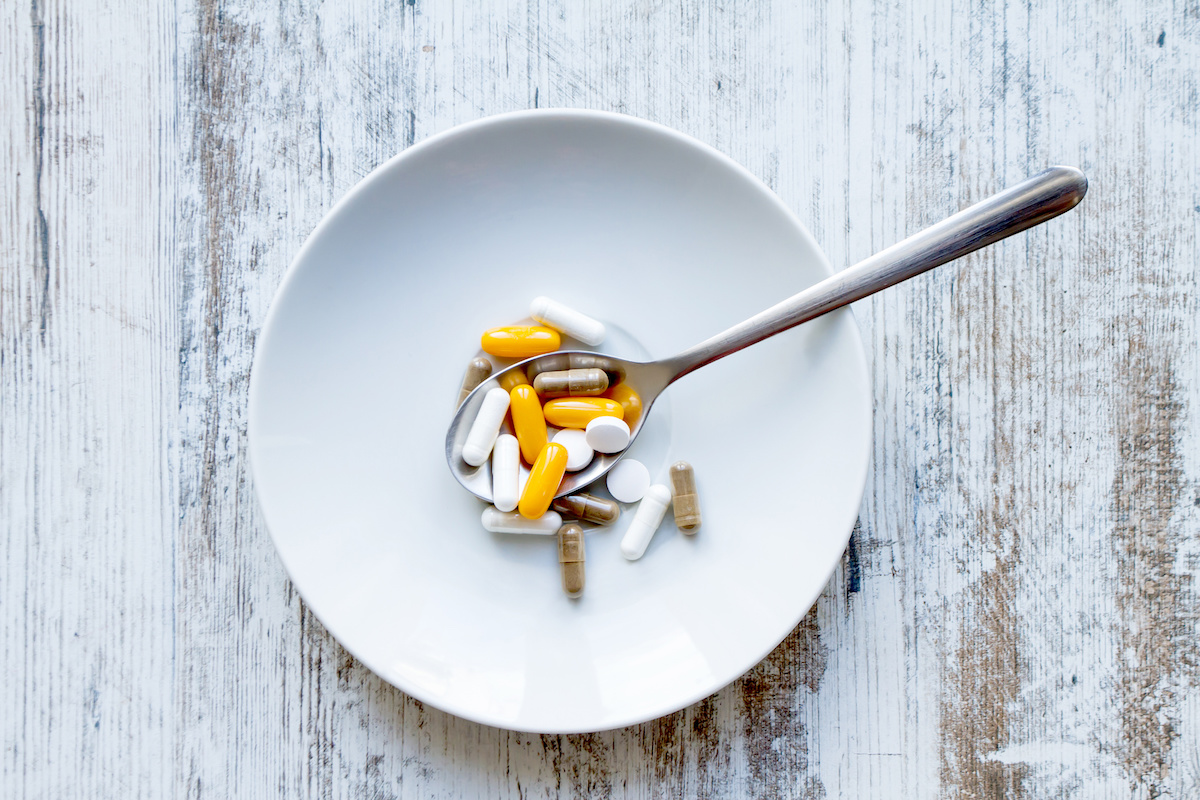Are BCAAs Magic Bullets or Is It Just Magic Marketing?

The benefits of protein have long been studied and understood in terms of both sports nutrition, and nutrition, in general.
Following a more reductionist approach in recent years, however, protein has started to be viewed more in terms of its individual components than the whole. That’s where amino acids come into the picture.
All proteins are constructed from amino acids (AAs), with the structure and function of that protein dictated by which ones are used, in what order, and how many in total (some as small as 10-20, others in the 100s of thousands). There are only 20 different amino acids, yet the length and combination of these gives rise to a near-infinite range of possible proteins that can be made. The often-used analogy is to think of amino acids as letters. Proteins, then, are words.
These 20 different amino acids have classically been categorised into two groups: essential and non-essential. The essential amino acids (EAAs) are so-called because the body cannot synthesise or manufacture them, so they have to be imported from the diet or taken in the form of a BCAA supplement. In fact, 9 out of the 20 are classified as EAAs. The other 11 amino acids are technically non-essential, but in reality only 5 of the 11 can be manufactured and made available enough not to have to rely on importing them from the diet.
What Is A BCAA then?
The table below shows a list of all 20 amino acids categorized by essentiality. Within the EAAs, the three branched-chain amino acids (BCAAs) are highlighted, so-called simply because they have a branched hydrocarbon chain attached to the amino group.
Congratulations, you now know more than most people: what BCAAs actually are.
Table 1: Categorization of amino acids in the diet
| Essential Amino Acids (EAAs) (Must Import) |
Conditionally essential (may need some importing) |
Non-essential (import not essential) |
|---|---|---|
| Histidine | Arginine | Alanine |
| Isoleucine* | Cysteine | Aspartate |
| Leucine* | Glutamine | Asparagine |
| Lysine | Glycine | Glutamate |
| Methionine | Proline | Serine |
| Phenylalanine | Tyrosine | |
| Threonine | ||
| Tryptophan | ||
| Valine* |
*denotes branched-chain amino acids (BCAAs).
But why do they get attention? BCAAs receive special attention for two main reasons. Firstly, due to their proposed ability to stimulate muscle protein synthesis (MPS), and secondly for their ability to delay the onset of fatigue (hence enhance performance). In this article, we look at the former: BCAAs and muscle protein synthesis.
BCAAs and muscle protein synthesis
Body protein (e.g. muscle) is not static. It can be both broken down to liberate amino acids (muscle breakdown) or increased from the building blocks of amino acids (MPS). If MPS outweighs the extent of muscle protein breakdown (MPB), then you get net MPS, hence muscle repair and/or growth.
Various factors will stimulate MPS, by activating the anabolic MTORC1 signalling pathways that regulate it. These include insulin (and IGF1), mechanical strain through the muscle (exercise), and the presence of certain amino acids. BCAAs are important in this regard, especially the BCAA Leucine. Leucine has a dual effect on stimulating MPS. Firstly, Leucine is suggested to be insulinotropic, contributing to increased insulin release irrespective of carbohydrate (i.e. glucose) availability. Insulin will strongly stimulate MPS but also aid uptake of other amino acids into the muscle.

Secondly, uptake of Leucine can directly increase levels of active MTORC1 in the cell and potentially activate the signalling pathway at several points, e.g. Akt (Protein kinase B). These insulin-independent effects of leucine on MPS have been shown to be further enhanced by the presence of the other BCAAs (valine and isoleucine).
If all that went over your head, just know that there is strong evidence to support the notion that leucine (with or without other BCAAs) is a significant stimulator of muscle protein synthesis.
Why It’s Not Just All About BCAAs
So far, so good, but stimulating MPS is not enough. In order to actually achieve MPS you have to have the materials with which to build the muscle, i.e. amino acids. In particular, you need to make sure you have an adequate supply of all 9 essential amino acids (EAAs), not just the BCAAs.
You also need to have the means to manufacture (if needed) the non-essential and conditionally essential ones from other things like carbohydrate, hence the reason why insulin and IGF1 are key promoters as they signify available fuel or energy. The essential amino acids are indeed the truly limiting factor when it comes to the magnitude of MPS. If the import of EAAs is inadequate then the only way to get these would be from body protein or indeed muscle protein itself, hence protein breakdown (MPB) will increase alongside this increase in MPS. The result is less net protein synthesis.
So yes, BCAAs (in particular Leucine) are true stimulators of MPS, but a few grams of these will not singlehandedly lead to muscle synthesis, you need an adequate supply of EAAs as well. And of course, don’t forget the stimulus of the exercise itself and ensuring you have adequate fuel/energy overall.
In practice what this means is that there is no need to consume BCAA’s supplements alone. Rather what you should look for are complete sources of protein either in your diet or from protein supplements when required. Studies show that in terms of net protein synthesis, complete protein is better than BCAAs alone.
This is why Form uses a blend of pea, rice, hemp and whole algae protein to provide a complete source of protein. The exact formulation of each protein is chosen so levels of amino acids are such that we ensure the optimum level of BCAAs without the need for additional supplements.

The Verdict On BCAAs
BCAAs will not on their own do everything touted in their marketing. To provide the benefits, you need all the other amino acids, i.e. a complete protein.
If you ensure you eat or supplement with complete proteins to meet your protein requirements, then there’s no need to take BCAA supplements.
To find a good protein supplement, read the label, ensure it is has a complete amino acid profile with a good amount of BCAAs and at least 1.5g of Leucine. Double-check these come from protein itself, and are not added individually as in the dodgy practice of “protein spiking” – adding individual amino acids rather than more costly proteins. Form’s Performance Protein is a complete protein with 5g of BCAAs per serving, all from vegan proteins.
Further reading and references
Branched-chain amino acids and muscle protein synthesis in humans: myth or reality? Int Soc Sports Nutr. 2017
Branched-Chain Amino Acid Ingestion Stimulates Muscle Myofibrillar Protein Synthesis following Resistance Exercise in Humans. Front Physiol. 2017
Branched-Chain Amino Acid Supplementation to Support Muscle Anabolism Following Exercise Kevin D. Tipton, PhD


















